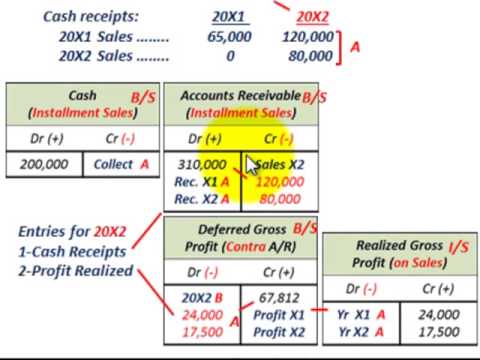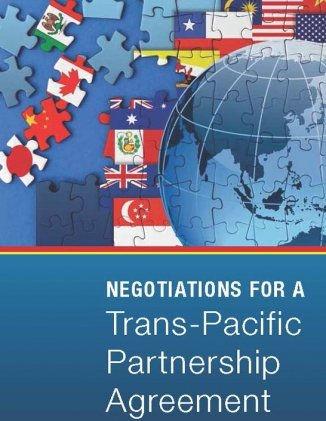



But again these charges are far better than the brokerage charges levied on the DDU shipments. The best part of DDP is that paying these charges upfront will help your shipments to pass through the customs window with little hassle and arrive at the customer’s address quickly. And again the customs need not contact the customer for all these extra charges. When customers are contacted by customs, there are greater chances of shipment abandonment. With DDP you can avoid the customers abandoning the shipments, yet again, you need to make the payment of the additional fees to keep your customers happy.
Delivered Duty Unpaid (DDU) is an international trade term meaning the seller is responsible for ensuring goods arrive safely to a destination; the buyer is responsible for import duties. By contrast, Delivered Duty Paid (DDP) indicates that the seller must cover duties, import clearance, and any taxes.
Customised Hedging and Trading solutions, across markets and time zones, through dedicated Forex Relationship Managers. These accounts are used for keeping the secuties provided as margin with exchanges. For the corporates to invest their surplus funds for a wide range of tenures.
D D P Investment Private Limited is majorly in Finance business from last 42 years and currently, company operations are strike off. We understand how naughty can kids be – playing with the furniture, spoiling their lunch meal all over the desk or banging and dancing on the study table is very common for the little ones. But you don’t have to worry, we have tested all our models for the worst and you can be sure of the desk’s durability and longevity. Precision welded joints and cross bracings make DDP-0610 exceptionally heavy-duty and secure, and keep the vibration and noise levels while writing to a minimum. On a business day, orders placed before 5pm are shipped out the same day.

Hence it is quite impossible to predict what will be the final charges that the customer needs to pay. With DDU, there are no processing fees while checkout on top of the duty, hence it looks cheaper. But again the seller needs to communicate to the receiver that there might be charges to be paid upon the shipment’s arrival in the customs.
DAT, or, Delivery at Terminal, is where the seller clears goods for export and is fully responsible for the goods until they have arrived at a named terminal at the end destination. This means the seller is responsible for everything, together with packaging, documentation, export approval, loading expenses, and supreme delivery. The buyer, in flip, takes over danger and accountability as of the unloading of the goods and clearing them for import. Detailed articles about Inco Terms of Delivery under export and import of International business have been mentioned in separate category – INCO TERMS – in this web site. It is always best to keep your business rules crystal clear, especially with charges. Why bother your customer with hidden charges, leaving them completely deceived when the final fees appear before them?
The buyer is answerable for acquiring all necessary licenses for importing the goods and paying all relevant taxes, duties, and inspection prices. In a DDU shipment, except duty or taxes of importing country, all other charges has to be paid by the seller of goods. In other words, the selling cost of goods included all charges to deliver goods up to the door of consignee except duty or tax of importing country. This agreement contains paying for delivery prices, export and import duties, insurance coverage, and some other bills incurred during transport to an agreed-upon location within the purchaser’s nation. Delivered-at-place is an international commerce term used to describe a deal in which a vendor agrees to pay all costs and suffer any potential losses of moving goods bought to a selected location. When shipping on FOB transport terms, the provider pays all the costs in the nation of origin and the buyer takes responsibility once the goods are on board the ship.
In different words, the promoting value of goods included all expenses to ship goods as much as the door of consignee except responsibility or tax of importing nation. Delivered Duty Unpaid is a world commerce term which means the vendor is liable for guaranteeing goods arrive safely to a destination; the customer is answerable for import duties. ddp stands for The difference between FOB and CIF delivery is the point at which responsibility for the cargo is passed between the seller and the client. In delivered-at-place agreements, the buyer is answerable for paying import duties and any applicable taxes, together with clearance and native taxes, once the cargo has arrived at the specified destination.
This liability includes aspects such as the loading and transportation of goods, unloading and final transportation. Delivered-at-place is a world commerce term used to explain a deal in which a seller agrees to pay all prices and suffer any potential losses of moving goods sold to a selected location. In the instruction paper the payment in Collect/prepaid/as arrange for FOB,DDU,DDP,CIF and how to choose thi payment. Whenever a seller is selling online, they need to ensure that there are no hidden VAT charges levied on the same. Amongst others, the unregulated funds or entity where the regulated investment administrator is from non-FATF member nation shall be under category-II.
What is DAP/DDU? Delivered at Place (DAP): The buyer (receiver) is responsible for all the duties, taxes, and clearance fees. Delivered at Place (DAP) was formerly known as Delivered Duty Unpaid (DDU). The two terms are often used interchangeably.
I suggest you to read these articles on CPT and DDP, so as to enable you to have a clear idea on these shipping terms. Difference between DAP in payment terms and DAP in delivery terms. What is DDU and how does DDP work in terms of delivelry under international business? The importers and exporters are suggested to use the latest version. Before we begin the study, let us first understand what these terms are – DDU and DDP.
InstaBIZ is an app for business customers to access banking accounts and do transactions on both mobile and tablet devices. A specialized account for payments to merchants for online purchase of goods and services. Facilities are available to customer in this accounts without limitation on transactions like Cash deposit/withdrawal, cheque book, fund transfer, online banking etc. The Current Account product provides a range of services like Anywhere Banking in India, which includes Banking from branches, Doorstep banking and Internet Banking. Furthermore, the seller will also need to pay for delivery of goods and export, up until the point the goods are loaded on board the ship. Free Alongside Ship only applies to sea or inland waterway ports.
DDP terms imply the vendor will ship the cargo to the situation requested by the customer and pay all the vacation spot country’s duties on the client’s behalf. DAP, ship from seller ends at destination place agreed, the vendor just isn’t required to unload the products. Seller pays for export customs, purchaser pays for import customs clearance, duties, and taxes.
DDU can provide for additional costs to be taken on by the seller if they are agreed upon ahead of time. For example, the parties may agree that the seller will pay expenses such as value added tax or customs charges. CIP is an Incoterm where the seller is responsible for the delivery of goods to an agreed destination in the buyers country, and must pay for the cost of this carriage. The sellers risk however, ends once they have placed the goods on the ship, at the origin destination. The buyer can pay for additional insurance during carriage of the goods.
The vendor must pay all duties, taxes, VAT and other destination expenses. It doesn’t require any get together for insurance and can be utilized for any mode of transportation. In apply, the vendor must know what to do when promoting as much as the ultimate destination with all bills coated. In terms of DDP shipments, they are expensive because the express couriers will mostly process the payment to the customs at an additional fee on your behalf.
It is always best to keep the customers informed about what to expect when the shipment arrives. It is quite common that the customers are not even aware of the customs charges to be paid, and it comes as an unwanted surprise. The customs will forward the package to independent customs brokers to collect the customs charges from the customers. Even there are chances of late fee-charging, storage fees, and much more.
It is often relevant for items like courier the place the total supply chain value is under management and with minimum value variance. The difference between FOB and DDP delivery phrases is who is controlling the cargo. On FOB delivery terms the customer is liable for the shipment from the goods being loaded onto the ship in the country of origin. SEBI had stated that these consolidated operational guidelines for foreign portfolio investors as well as designated depository participants have been issued to facilitate implementation of SEBI Regulations, 2019.
DDU and DDP are both Incoterms that are defined by the International Chamber of Commerce. If you are a freight forwarder, you have to deliver cargo to importer, with out accumulating any expenses from him besides duties or taxes if any. You can bill your DDU costs to your office counterpart at load port. (A full particulars about terms of delivery have been defined in the same net blog , a free tutorial on export and import trade. Delivered Duty Paid The only cost do not assume by the seller is the unloading of goods at delivery place. The only difference between Incoterms DDP and DAP is that in DDP all costs and taxes of import clearance are paid by the seller while in DAP are paid by the buyer.

Once the products arrive at the agreed-upon location, the customer turns into answerable for paying import duties, as well as further transport costs. To make a smooth delivery, it is always better to stick to DDP Incoterms. But again some companies work with larger shipments, they depend on DDU for export and import. Hence, what you choose is completely depending on the business model you work with. DDP or Delivery Duty Paid Incoterm payment means that any charges on duties and taxes in customs are to be paid by the sender itself. Most of the sellers include these charges at the checkout from the store and collect the same from the customers to avoid any hassle at the customs.
Account specifically designed for government suppliers, vendors and contractors with no minimum MAB. Simply,Choose a subject/topic and get started on a self-paced learning journey in a world of fullforms. The Buyers and Sellers are suggested to use Incoterms 2020, the latest version of delivery terms for movement of goods.Click here to read the extract of Inco Terms 2020, easily explained. Comment below your thoughts about this subject – Difference between DDP and DDU.
VITS provide the DDP service, DDP stands for Delivered Duty Paid. VITS are able to render DDP shipments, which emphasizes on the obligation of the sellers to deliver the products at the destination within time. FAS stands for Free Alongside Ship, an international commerce term used to describe the delivery of goods where the seller takes on some responsibility for the shipment of goods.
Under DDP, the Buyer is only responsible for unloading. The Seller is responsible for everything else including packing, labeling, freight, Customs clearance, duties, and taxes. Conversely, under DAP, the buyer is responsible for not only the unloading, but the Customs clearance, duties, and taxes as well.